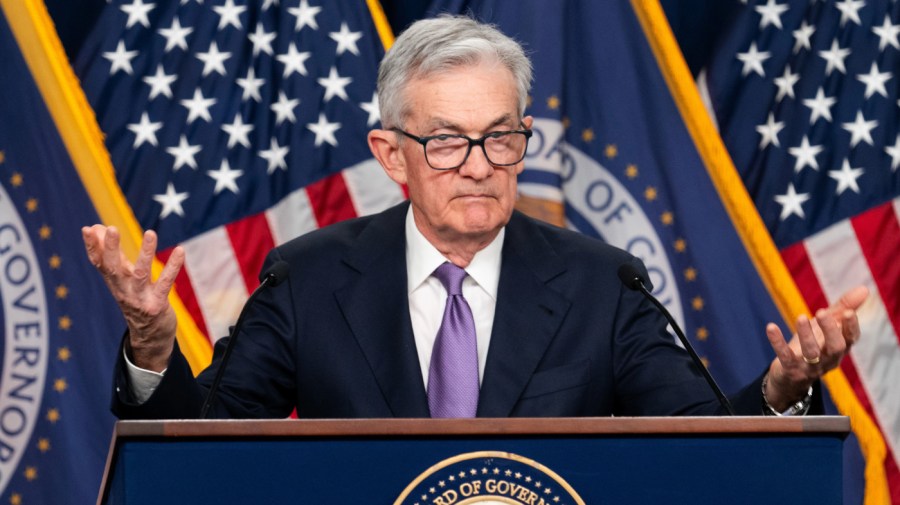
The Federal Reserve held interest rates at a 23-year high Wednesday as its battle to bring down inflation drags deeper into 2024.
The announcement follows a two-day meeting of the central bank’s monetary policy committee, which raised borrowing rates from near zero in March 2022 to a range of 5.25 percent to 5.5 percent as pandemic-induced inflation skyrocketed.
While inflation has dropped drastically from its 9 percent peak two years ago, the Fed has expressed concern that the economy is still too hot, the labor market is still too strong and prices are still rising too fast to start cutting rates.
Wednesday’s consumer price index (CPI) showed that while prices did not change in May, they’re still up 3.3 percent from a year ago.
The annual rate is well above the central bank’s mandate to maintain 2 percent annual inflation, which has proven more elusive than officials may have anticipated in December when they signaled several rate cuts this year.
Diane Swonk, chief economist at KPMG, called the latest inflation gauge reading “welcome news but not yet a victory for the Fed.”
“We still expect a December cut, but a September cut in rates is now a possibility; the challenge will be for the Fed to communicate a shift in momentum on a quarterly basis even as year-over-year inflation measures appear to look stickier,” Swonk said.
A majority of interest rate traders anticipate a September cut following the latest CPI report, according to the CME FedWatch Tool. Most traders still don’t anticipate more than two cuts this year.
The September meeting is the last time the Federal Open Market Committee could cut interest rates before the 2024 election, where inflation and the economy are hot button issues for many Americans feeling the pain of high borrowing costs.
Total household debt jumped $184 billion to $17.7 trillion during the first quarter of the year, and delinquency rates are on the rise, according to the New York Fed’s latest estimate.
“About a third of balances associated with maxed-out borrowers have gone delinquent in the last year, compared to less than a quarter of balances per year before the pandemic,” the bank’s researchers wrote in a blog post.
The Fed, a politically independent agency, is trying to tread carefully around the looming election.
Fed Chair Jerome Powell, who famously frequently wears a purple tie to address reporters at press conferences, was nominated to the chair role in 2017 by former President Trump.
Trump soured on Powell when the chair refused to craft the central bank’s monetary policy around the former president’s political objectives. He accused Powell in February of being “political” and suggested he would consider cutting interest rates to give Democrats a boost in the 2024 election.
President Biden renominated Powell as chair in 2021 over the objection of progressives, who have been pushing the Fed to cut rates.
“Rent is now the main driver of inflation — and high interest rates are making the housing affordability crisis worse. Chair Powell and the Fed need to cut rates,” Sen. Elizabeth Warren (D-Mass.) wrote on the social platform X.














